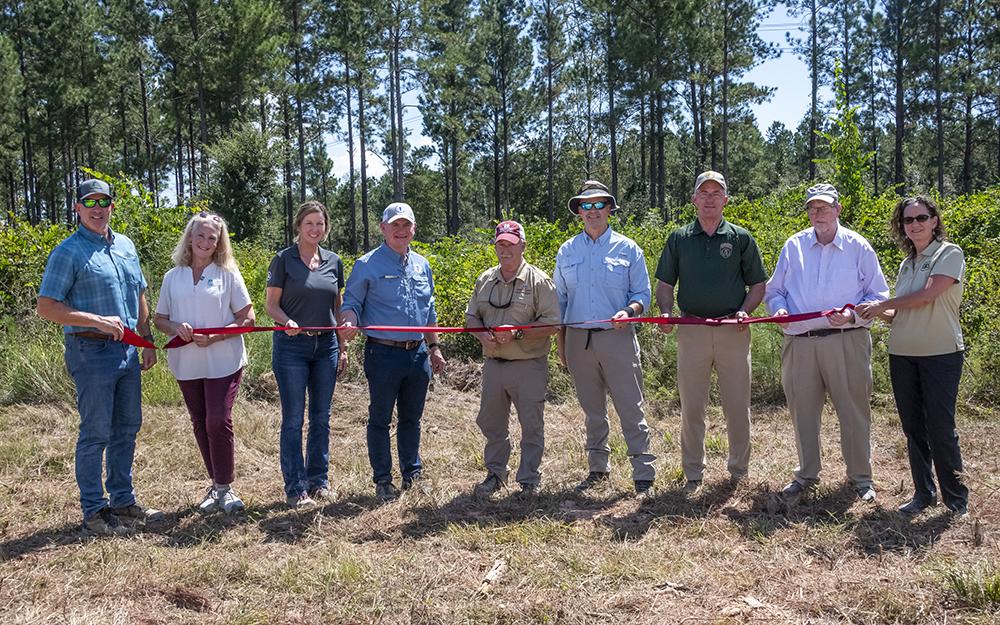MSU celebrates ribbon cutting at Wolf River Coastal Forest Research and Education Center
Contact: Meg Henderson
PERKINSTON, Miss.—Mississippi State leaders and partners gathered today [Sept. 23] for a ribbon cutting at the Wolf River Coastal Forest Research and Education Center to celebrate the land that will help protect water quality, provide wildlife habitat and fill a gap in watershed conservation efforts along the Mississippi coast.

The coastal forestland property, formerly a commercial forest owned by Weyerhaeuser, spans 14,000 acres across parts of Harrison and Hancock counties and is now under strategic management by MSU’s Forest and Wildlife Research Center.
With an impressive roster of partners—Mississippi Department of Environmental Quality, National Fish and Wildlife Foundation, Mississippi Forestry Commission, The Nature Conservancy, U.S. Forest Service, Weyerhaeuser and the Land Trust for the Mississippi Coastal Plain—funds were secured through a U.S. Forest Service Forest Legacy Program grant and the National Fish and Wildlife Foundation’s Gulf Environmental Benefit Fund to purchase the land, which the university acquired in November 2024.
The ribbon cutting brings to life a decades-long vision for a major restoration project in the Wolf River watershed, which empties into the Mississippi Sound at the Bay of St. Louis.
“The Wolf River property has been under the excellent stewardship of Weyerhaeuser, which managed it as a sustainable commercial forest for decades. It will now provide great opportunities for our students to learn about forest and wildlife management and water conservation in coastal ecosystems, while faculty research will assist local landowners and the forestry industry,” said Wes Burger, dean of MSU’s College of Forest Resources and director of the university’s Forest and Wildlife Research Center.
“We knew this was a very complex transaction,” said Russell Bozeman, Mississippi’s state forester. “We also knew Mississippi State would be a great steward of the land, creating a resource to facilitate large-scale research and education in areas like water quality monitoring, coastal forest wildlife and fisheries habitat and prescribed fire.”
Preserved in perpetuity by the university, the center will serve as an outdoor laboratory for conservation-based research and a space for hands-on learning. Operations began this summer, starting with road improvements, invasive species control and site preparation, and will be followed by prescribed burning and replanting native longleaf pine this winter. Long-term plans include developing facilities to host management, staff, researchers and students.
Chris Wells, executive director of the Mississippi Department of Environmental Quality, emphasized the impact of the acquisition in advancing the state’s priorities for coastal conservation.
“By focusing on protecting, conserving and restoring the headwaters of the Wolf River, we aim to improve water quality and address injuries to the Gulf Coast stemming from the Deepwater Horizon oil spill. This project serves as a model of how strategic partnerships can bolster our restoration efforts and safeguard the Mississippi Gulf Coast’s unique and invaluable ecosystems,” Wells said.
Mississippi State University is taking care of what matters. Learn more at www.msstate.edu.